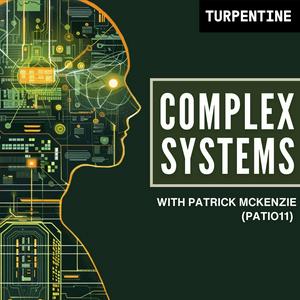Patrick McKenzie (patio11) reads an essay about "industrial-scale" fraud and why it should be treated as a professional business process rather than a series of isolated accidents. He explains how fraudsters leverage specialized supply chains—shared CPAs, incorporation agents, and "least attentive" banks—to loot public funds. Patrick argues that the government’s "pay-and-chase" model is fundamentally broken and suggests that simple "proof of work" functions, like a 30-second cell phone video of a workspace, could provide the visceral signal that paperwork lacks, and examines the state’s lack of "object permanence" regarding serial fraudsters and how scaled data provides the defense-side advantage needed to catch modern frauds.
–
Full transcript available here: www.complexsystemspodcast.com/fraud-as-infrastructure/
–
Presenting Sponsor: Mercury
Complex Systems is presented by Mercury—radically better banking for founders. Mercury offers the best wire experience anywhere: fast, reliable, and free for domestic U.S. wires, so you can stay focused on growing your business. Apply online in minutes at mercury.com.
Mercury is a fintech company, not an FDIC-insured bank. Banking services provided through Choice Financial Group and Column N.A., Members FDIC.
–
Links:
Bits about Money: https://www.bitsaboutmoney.com/archive/fraud-investigation/
Dan Davies on Complex Systems: https://open.spotify.com/episode/5QKxzgumJXSQuaWCmYAoM9
Jetson Leder-Luis on Complex Systems podcast: https://open.spotify.com/episode/3NiC7x9edoxJXkNW9vRfAT
Stripe’s Emily Sands on Complex Systems: https://open.spotify.com/episode/64Dyh6Gbg1lg4qUFwId0hc
–
Timestamps:
(00:00) Intro
(05:23) In which we briefly return to Minnesota
(09:26) Common signals, methods, and epiphenomena of fraud
(09:30) Fraudsters are playing an iterated game
(11:29) The fraud supply chain is detectable
(14:27) Investigators should expect to find ethnically clustered fraud
(20:11) Sponsor: Mercury
(21:47) High growth rate opportunities attract frauds
(26:04) Fraudsters find the weakest links in the financial system
(32:35) Frauds openly suborn identities
(35:57) Asymmetry in attacker and defender burdens of proof
(40:13) Fraudsters under-paperwork their epiphenomena
(44:22) Machine learning can adaptively identify fraud
(48:14) Frauds have a lifecycle
(50:34) Should we care about fraud investigation, anyway


